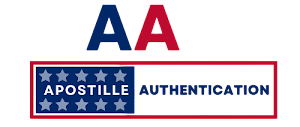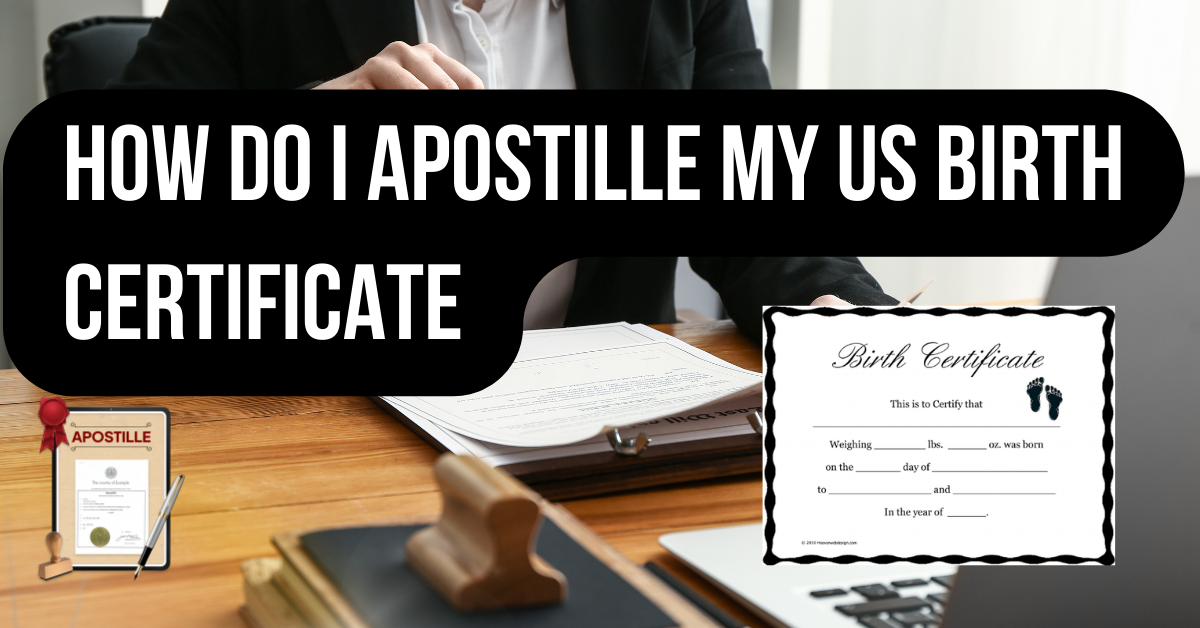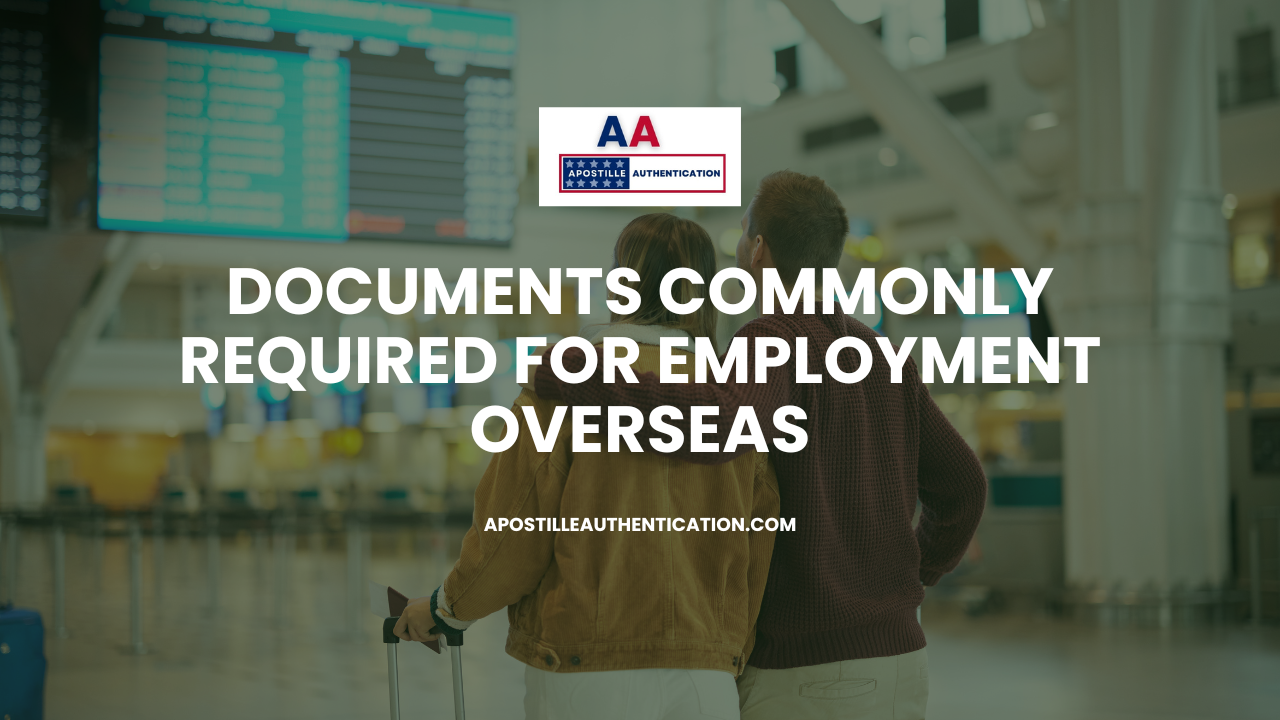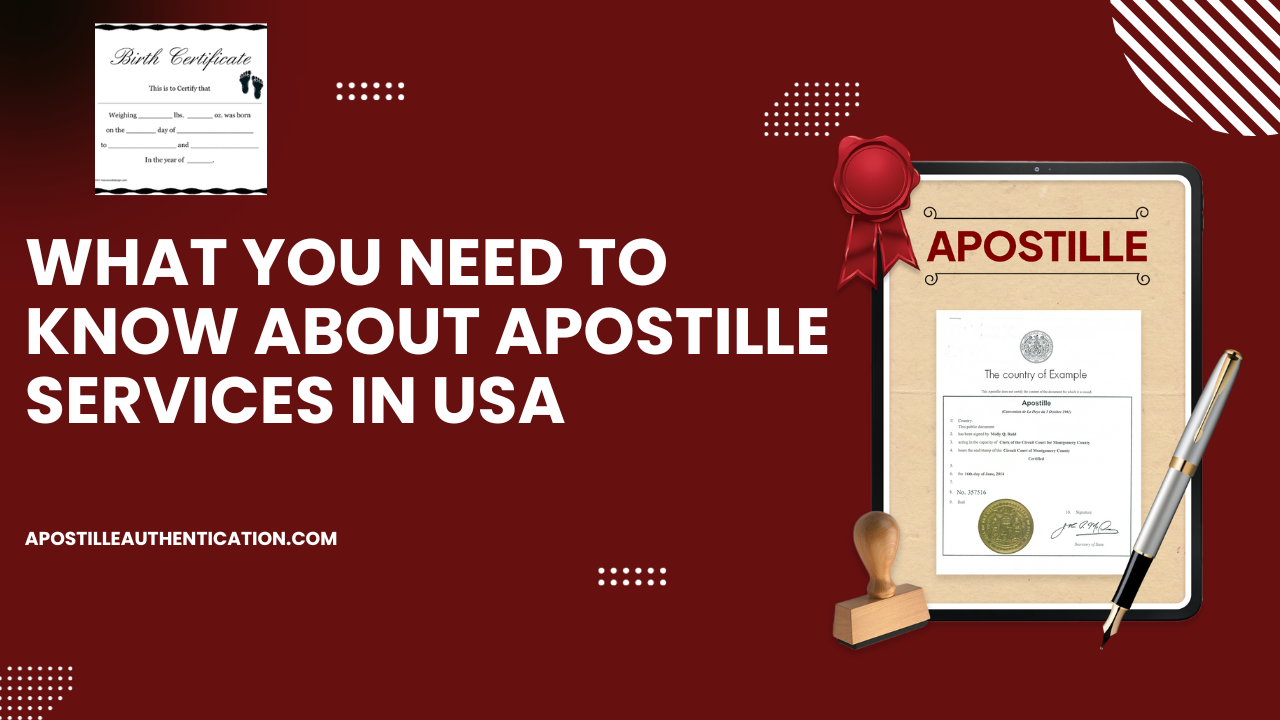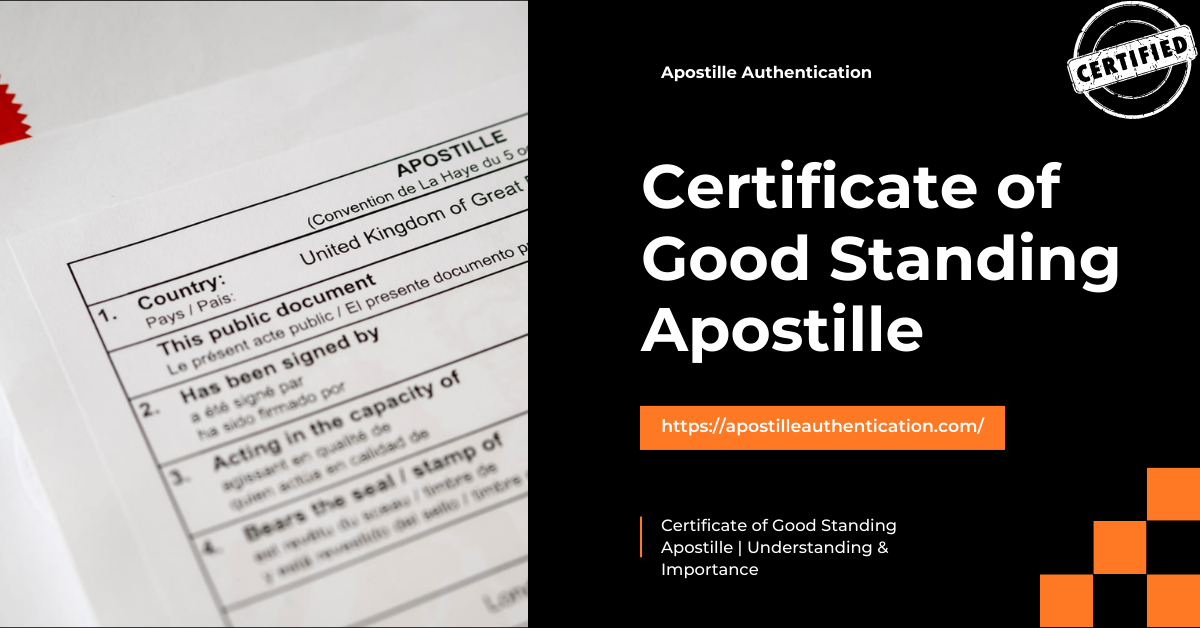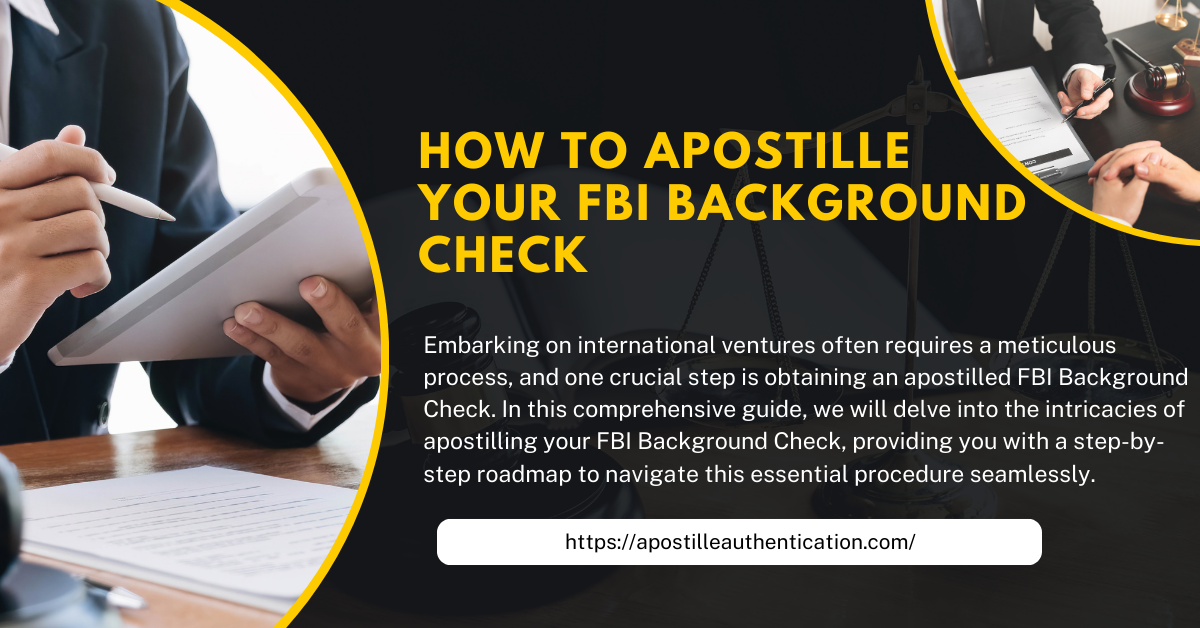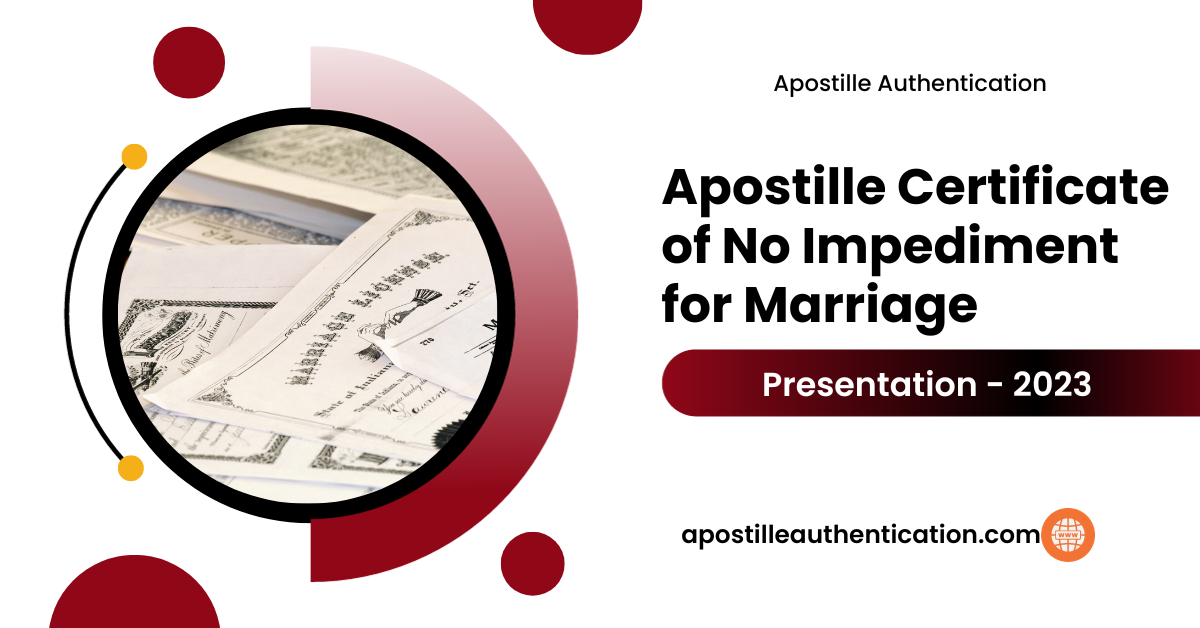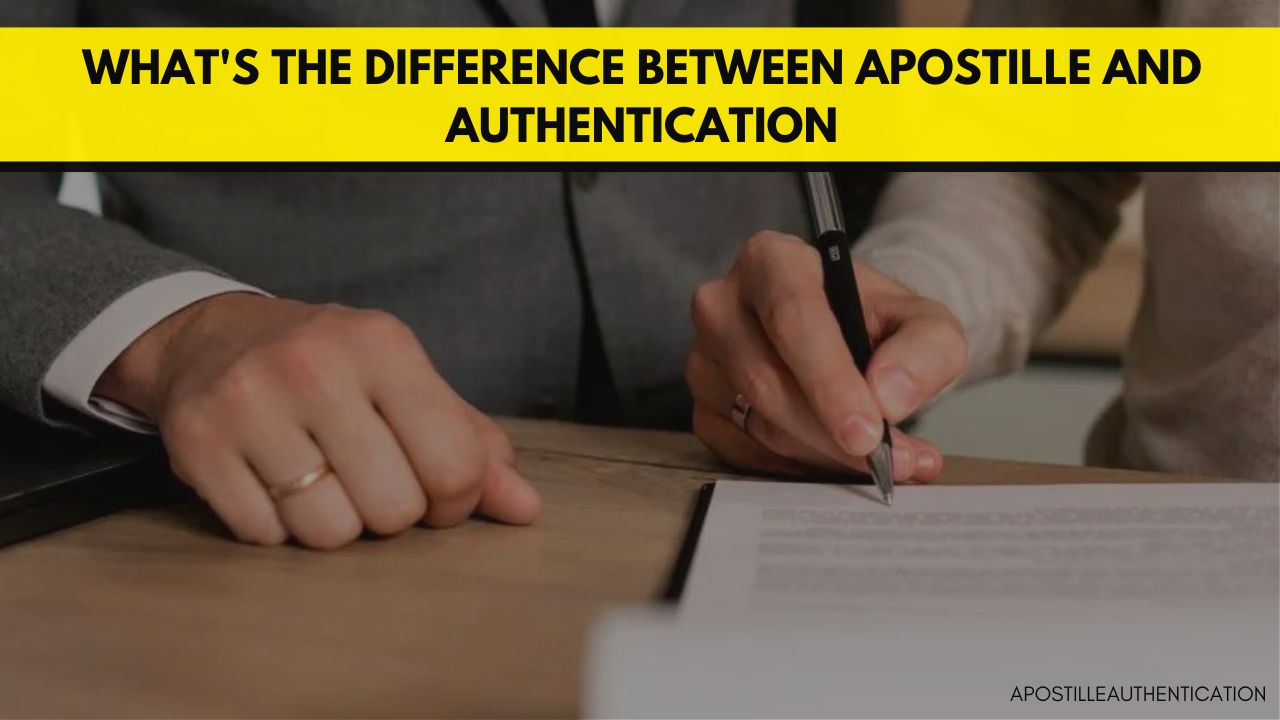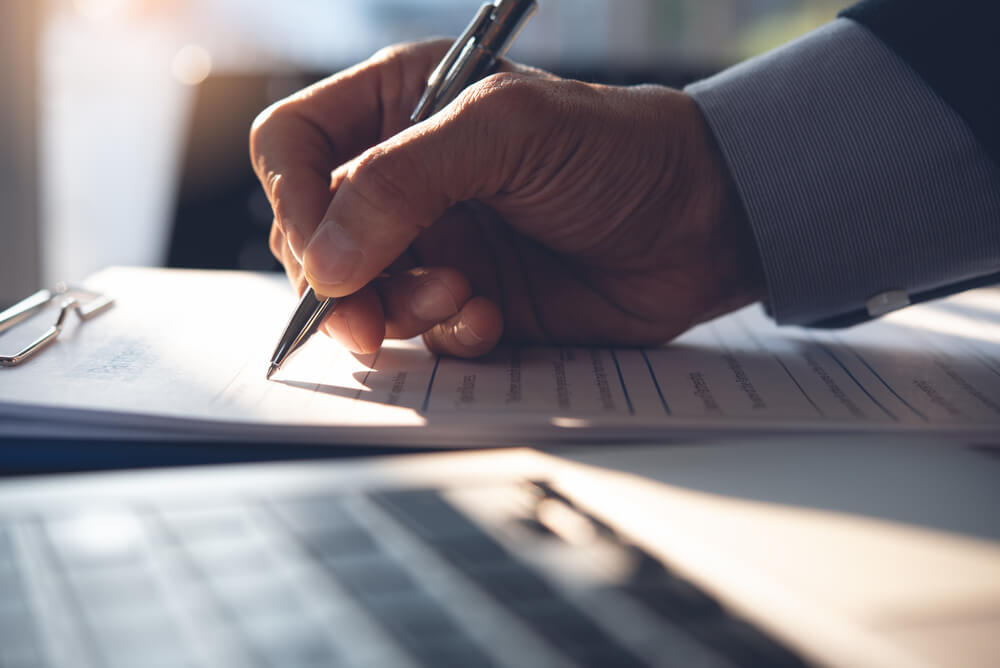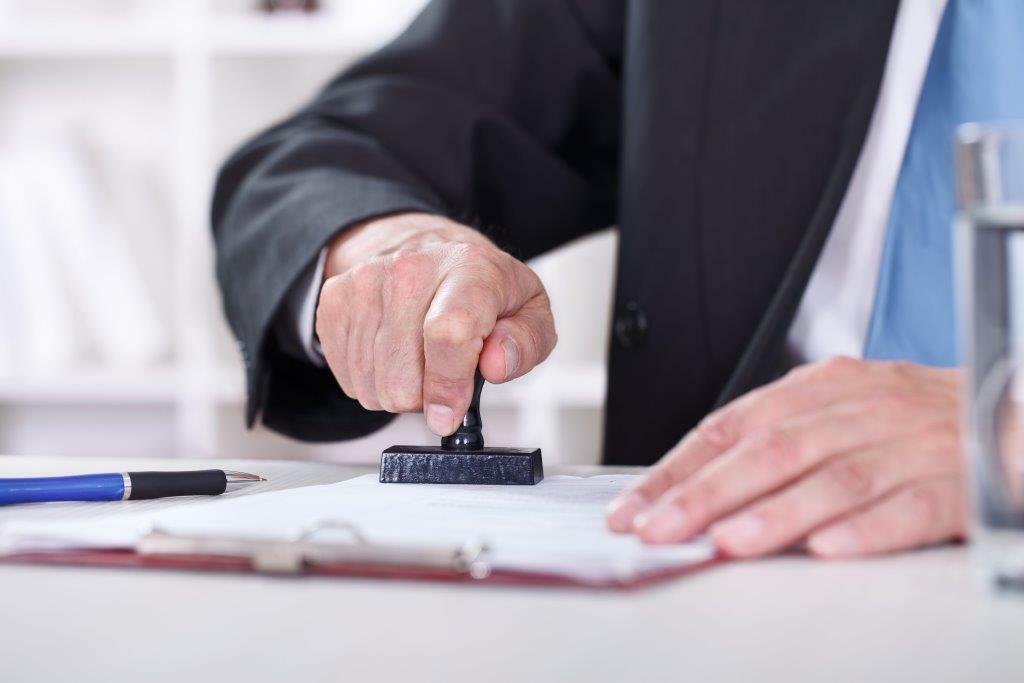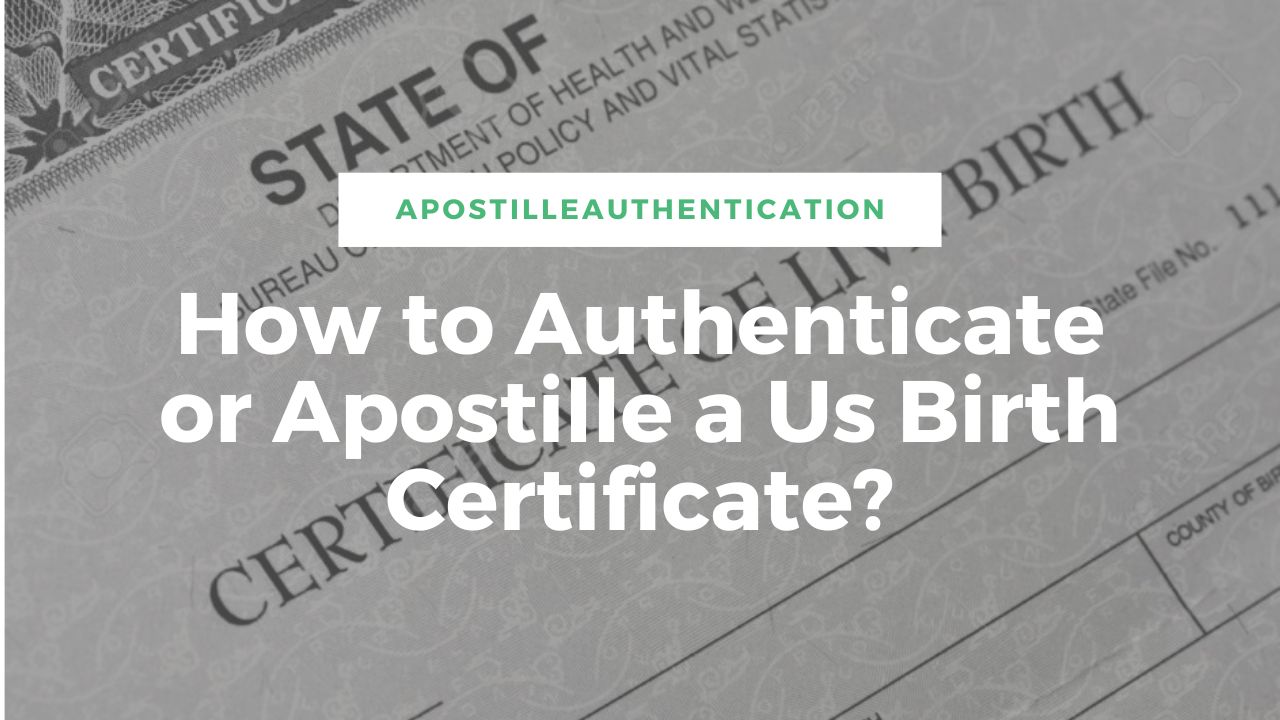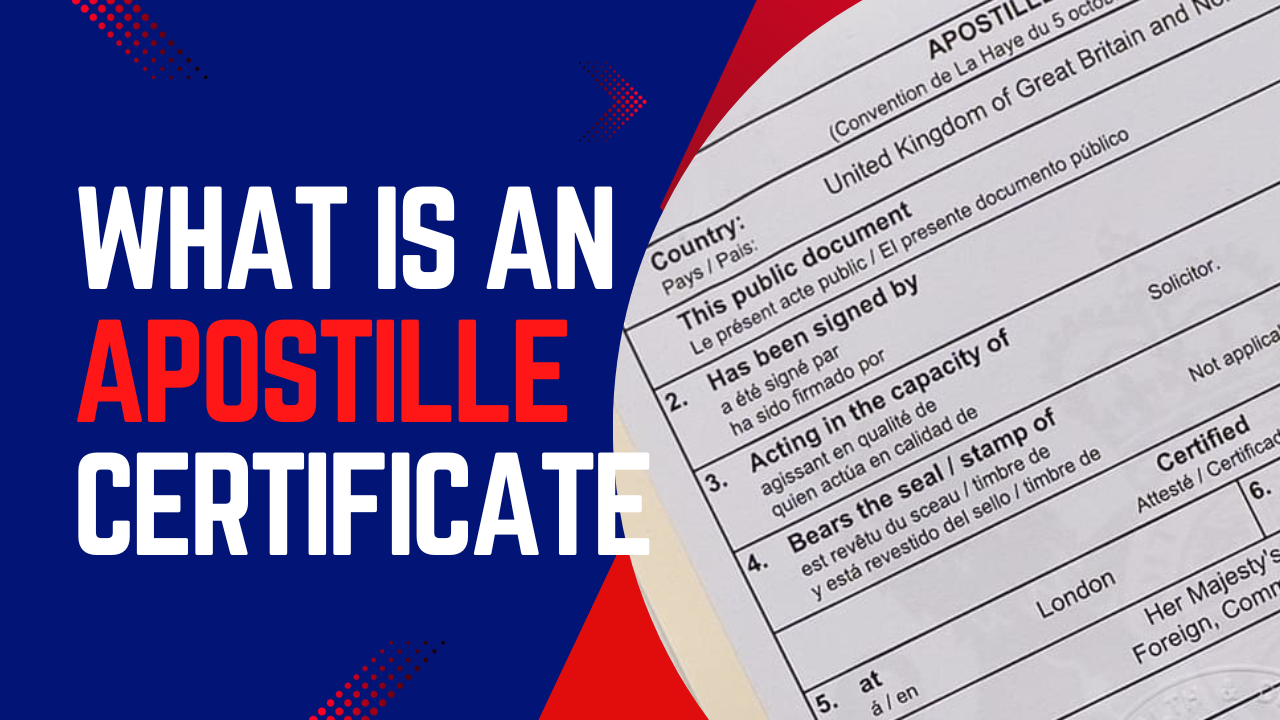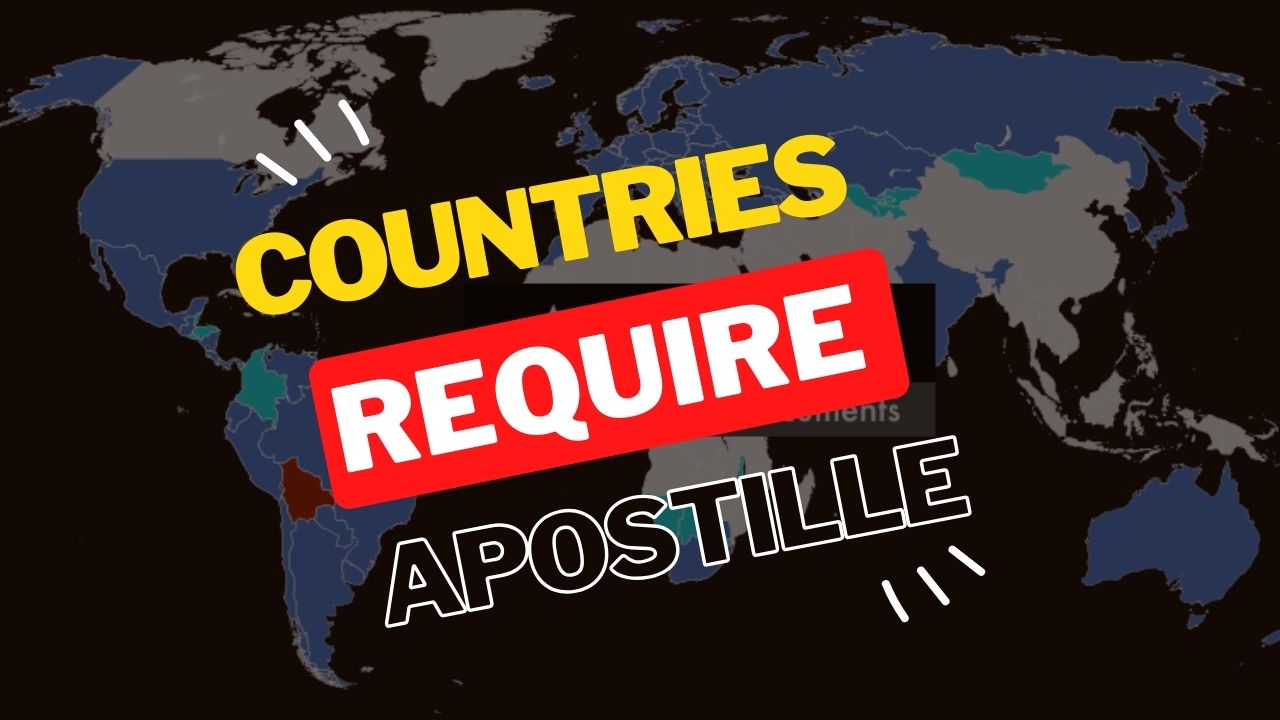An apostille certificate is a critical document required for the authentication of public documents for international use. If you need to submit documents like birth certificates, marriage certificates, diplomas, etc. overseas, getting them apostilled by the relevant authority is essential.
This comprehensive guide will explain everything you need to know about apostille certificates – what they are, why they’re needed, who needs them, how to get an apostille, frequently asked questions, and more.
What is an Apostille Certificate?
An apostille certificate is a form of authentication issued by the government that validates the origination of a public document so it can be legally recognized in foreign countries that are members of the Hague Convention.
The apostille itself is a stamp or printed certificate that is attached to the original document. It verifies the authenticity of the signature, capacity of the signer, and the seal/stamp on the document so that it can be considered legitimate overseas.
Purpose of an Apostille
The main purpose of an apostille is to certify that a document is issued by the appropriate authority so it can be accepted globally.
Many countries require an apostille on documents signed in one country but used in another to:
- Verify the document is legitimate.
- Confirm the identities of the parties involved.
- Prevent fraud through document authentication.
- Streamline the process for international legal transactions.
- Facilitate travel, work, and education abroad.
Without an apostille, public documents from one country may not be recognized as valid in another country. The apostille establishes trust so the documents will be accepted.
The Hague Convention
The requirement for an apostille is established by a treaty called the Hague Convention Abolishing the Requirement of Legalization for Foreign Public Documents in 1961.
Over 100 countries have signed this convention and agree to recognize documents certified with an apostille seal from other member countries. This eliminates the need to have documents ‘legalized’ by each country’s embassy it will be used in.
The convention simplified the document authentication process between member countries by standardizing it with apostille certificates. Anyone needing to submit public documents internationally can benefit from apostille services if that country is part of the convention.
Who Needs an Apostille Certificate?
If you need to get any kind of public document, such as a birth, marriage or death certificate, diploma, transcript, etc. accepted overseas, you’ll likely need an apostille seal attached by the appropriate authority.
Here are some of the most common situations where an apostille is required:
Using Documents for Immigration
One of the most frequent uses of apostille certificates is for immigration purposes. Whether you are immigrating yourself or sponsoring someone to immigrate to another country, apostilled documents are often mandatory.
For example, birth and marriage certificates submitted for visa applications usually need to be apostilled. Any document you need to prove your identity or relationship with family members will need authentication.
Academic Documents
Those furthering their education abroad or looking for employment overseas will need academic transcripts, diplomas, degrees and certificates from their home country apostilled before they can be submitted.
This includes students attending international schools, graduating high schoolers and higher education graduates looking to study or work abroad. The institutions in other countries will need to verify the legitimacy of academic documents with an apostille.
Corporate Documents
Businesses that operate internationally or have foreign shareholders may be required to have corporate documents like articles of incorporation, bylaws, resolutions, power of attorney documents, etc. apostilled.
This allows the documents to be legally valid in the foreign country for establishing subsidiaries, bank accounts, partnerships, and other activities.
Foreign Adoptions
The adoption process for children from overseas to the United States requires many documents to be apostilled. This includes the child’s birth certificate, consent forms, orphan petitions, and court orders.
Having properly apostilled documents helps facilitate and expedite the adoption process so the child can be united with their adopted family.
Marriage Documents
Those looking to get married overseas will need to have their birth certificate or other documents proving identity apostilled beforehand. Marrying abroad requires verification of one’s origins and legal status in order to properly register the marriage.
An apostille will also be required later to register the marriage certificate back in your home country after the wedding. This allows it to be legally binding in both countries.
Inheritance Proceedings
The probate process often necessitates apostille services when inheriting estate and property across national borders. Documents like wills and testaments, court orders, and death certificates need to be apostilled to be honored internationally.
This allows executors and administrators to carry out the wishes of the deceased according to the laws of multiple countries.
As you can see, the need for properly apostilled paperwork spans many legal proceedings and life events. Any time documents need to be made valid overseas, turning to apostille services should be your first step.
How to Get an Apostille Certificate
The apostille application process will vary slightly depending on which country you are in, but the general steps are:
1. Prepare Your Documents
Gather the original documents that will need to be submitted overseas. Make sure they are recently issued with original signatures and seals. Documents dated too long ago may be rejected.
Many apostille service providers can help source official copies of documents like birth certificates if you no longer have yours.
2. Authenticate the Originals
The next step is to have your documents ‘authenticated’ in your country of origin. This involves getting them certified by:
- A notary public
- Local registrar
- Records office
- Secretary of state
- U.S. State Department (for U.S. residents)
This puts an official seal validating the document and signature of the issuing authority.
3. Apply for the Apostille
Now you can apply to get the apostille certificate attached to the document. This requires submitting an application form and your authenticated originals to the designated ‘Competent Authority’ that handles apostilles in your country.
In the U.S., this is your state’s Secretary of State office. The documents are reviewed and validated, then the apostille seal or stamp is affixed.
4. You Receive the Apostilled Documents
The Competent Authority will return your original documents with the apostille seal attached. Check that the seal matches your documents and contains the needed information.
Your documents are now properly apostilled and ready for overseas use!
In some cases, you may opt to use an apostille service provider to assist with any part of this process on your behalf.
How Much Does an Apostille Cost?
The cost to apostille a document ranges from $50 to $200 per document depending on your location. The price to have documents apostilled includes:
- Authenticating the originals
- The application fee
- Any shipping fees
Factors that affect the total apostille cost:
- Which state or country you are in – fees vary slightly
- Single documents vs. batches – batches usually cost less per doc
- How fast you need processing
- Using an agency for assistance vs. self-processing
While costs do add up for multiple documents, getting them properly apostilled is well worth the investment for legal assurance and peace of mind.
How Long Does It Take to Get an Apostille?
Turnaround times for apostille processing depends on:
- Where you apply
- The service option you choose
Standard apostille processing through government offices takes 4-8 weeks on average in the U.S. Using a private apostille service can expedite this to a few days if needed.
Applying in person at government offices is the slowest method, taking up to 8 weeks.
Mail applications through government offices usually take 4-6 weeks.
Using a same-day in-person apostille service gets documents turned around in 1 business day.
Rush mail apostille services through private companies take around 1-7 business days.
Planning as much as possible will ensure your apostilled documents are ready when you need them. Allow more time if applying overseas.
Common Questions and Answers About Apostilles
Here are answers to some frequently asked questions about getting documents apostilled:
Where do I get an apostille in the United States?
In the U.S., apostilles are issued by your state Secretary of State office. Each state has a division that handles verified documents.
How long is an apostille valid for?
Apostilles do not have an expiration date, so they are valid indefinitely. However, the underlying document may expire or no longer be usable at some point.
What information is in an apostille?
The apostille certificate must include:
- The country it was issued in
- Which authority confirmed the document
- The identity of who signed it
- An authentication date and number
- An embossed seal or stamp
Can documents be rejected even if apostilled?
Yes – just because a document is apostilled does not guarantee every country will accept it. The receiving authority ultimately decides based on their specific requirements.
How much does it cost to apostille a birth certificate?
For a standard U.S. birth certificate, apostille costs are usually $80 – $150, including authentication and application fees.
Can I apostille my own documents?
It’s possible, but can be very complicated. Using an apostille service provider ensures it’s done correctly. Self-processing takes much longer too.
Do I apostille the original document or a copy?
Only original documents like birth certificates can be apostilled, not photocopies. The process certifies the genuineness of the original.
Alternatives to Apostilles
For countries not part of the Hague Convention, there are similar options to legalize documents, such as:
Certification by Embassies
Documents can be certified by a series of embassies to establish validity overseas. This method is time-consuming and costly.
Notarization
Some countries may accept documents notarized by a local notary along with certification from government authorities. Requirements vary.
Letter of Explanation
Applicants can include a personalized letter explaining a document and why it lacks an apostille. This isn’t guaranteed to work but can assist in some cases.
When possible, however, obtaining apostille certification is the best way to ensure documents are recognized internationally.
Why Choose Us for Apostille Services?
Apostilleauthentication provides fast, convenient apostille service for birth certificates, diplomas, transcripts and all public documents.
Here’s why we’re the best choice for legally validating your documents internationally:
- Over 20 years of experience with apostilles
- Guaranteed authenticity and accuracy
- Affordable pricing with reliable turnaround
- Available 24/7 for questions
- Personal assistance for a smooth process
Let our experts handle getting your documents apostilled correctly the first time. Call today to learn more!
Conclusion
We hope this comprehensive guide gave you a better understanding of what an apostille is, when you need one, how to get a document apostilled, frequently asked questions, prices and more.
Having properly apostilled documents eliminates obstacles for those traveling, working, getting married, or studying internationally. It facilitates important personal matters globally.
Don’t leave the validity of your paperwork up to chance. Contact us to start the stress-free apostille process today!
